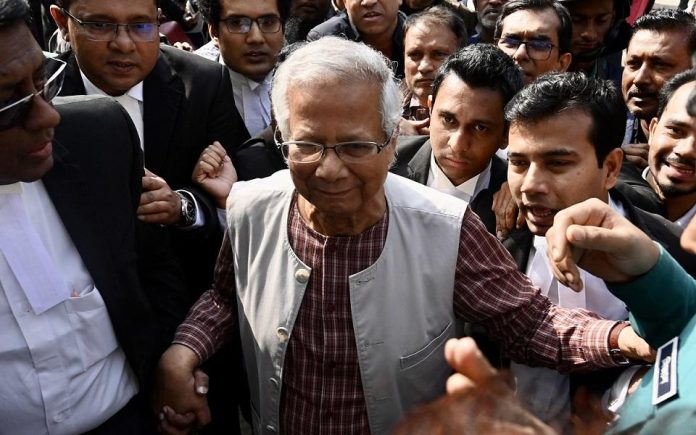Bangladesh’s microfinance Nobel winner Muhammad Yunus has been appointed head of the interim government after mass protests forced Prime Minister Sheikh Hasina to flee.
The appointment came quickly after student leaders urged the 84-year-old Yunus, credited with lifting millions out of poverty in the South Asian country, to lead the government. He declared himself ready to do so.
If action is needed in Bangladesh, for my country and for the courage of my people, then I will take it.
The decision “to form an interim government with… Yunus as its chief” was taken at a meeting between President Mohammed Shahabuddin, military leaders, and the heads of the Students Against Discrimination (SAD) group, according to Shahabuddin’s press office.
The president has asked the people to help ride out the crisis. Quick formation of an interim government is necessary to overcome the crisis.
Yunus will have the title of chief advisor, according to SAD leader Nahid Islam.
Hasina, 76, had been in power since 2009 but was accused of rigging elections in January. She then watched as millions of people took to the streets over the past month demanding her resignation. Hundreds of people were killed as security forces tried to quell the unrest, but protests escalated and Hasina fled aboard a helicopter on Monday as the military turned against her.
Stop violence
Army chief General Waker-Uz-Zaman stated that it was “time to stop the violence.” The president dissolved parliament on Tuesday, a key demand of student leaders and the major opposition Bangladesh National Party (BNP), which demanded elections within three months.
The military shuffled several generals on Tuesday, demoting some considered close to Hasina and sacking Ziaul Ahsan, commander of the Rapid Action Battalion. Millions of Bangladeshis took to the streets to celebrate Hasina’s withdrawal, with jubilant crowds also storming and looting her official residence.
The total death toll has reached at least 432, according to an AFP tally based on police, government officials, and hospital doctors.
The fate of Hasina, who is now in India, is also uncertain. A source reported that she had wanted to go to London, but calls by the British government for a UN-led enquiry into the violence cast doubt on that.
